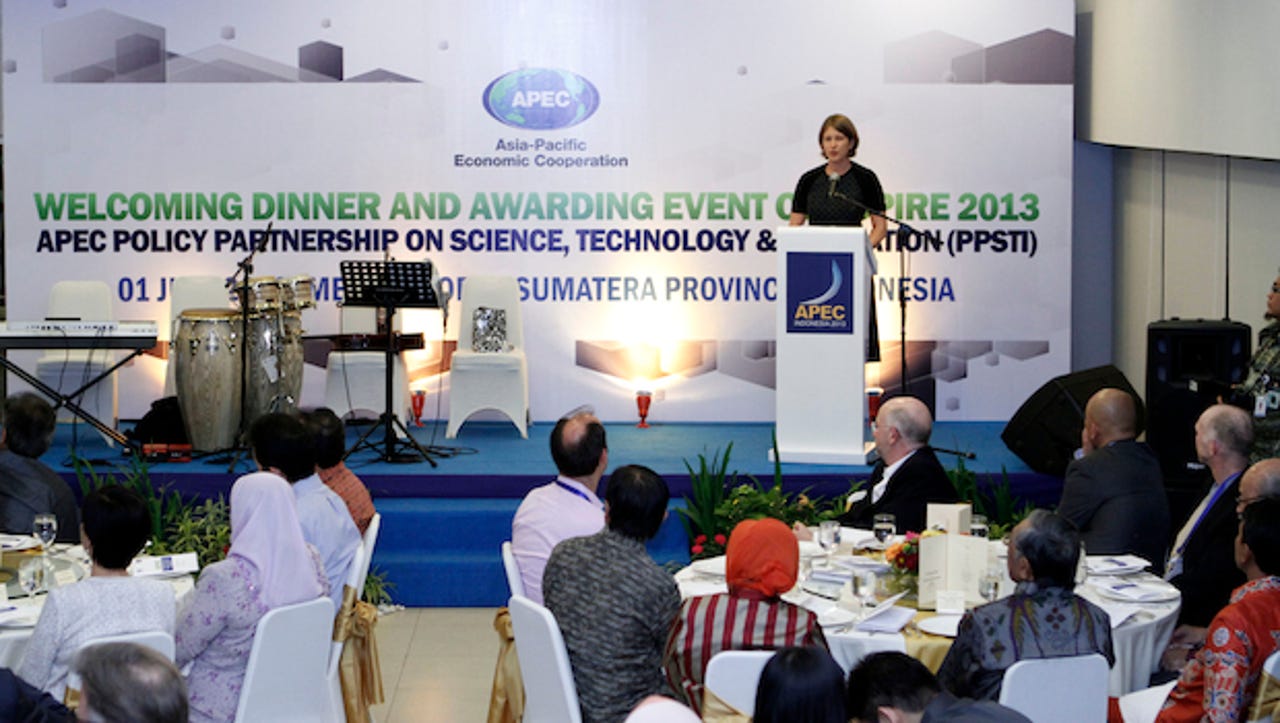Indonesia telcos prep infrastructure as APEC summit nears

Preparations for this year's Asia-Pacific Economic Cooperation (APEC) Summit, to be held in Bali from October 1 to 8, are underway. It's such a very important and prestigious international event for Indonesia, so all entities involved have prepared themselves to greet and make the show huge success for the stakeholders.
Apart from Indonesia's president, U.S. president Barack Obama, Russia's Vladimir Putin, China's Xi Jinping, will be among 21 heads of state who will be joining this mega day event.
Some of them have finished their business while the rest are still dealing with nitty-gritty matters in providing world-class products and services for senior leaders, APEC ministers, economic leaders meetings as well as the CEO Summit.

Take a look at Indonesian telcos, for instance. Telkom Indonesia, together with its subsidiary Telkomsel, have set up reliable and always-on information and communication technology services for the summit. As the event progresses, the operator will work to ensure the service's accessibility and reliability, heavily relying on Indonesia Digital Network (IDN) Bali.
Three broadband networks running on Wi-Fi, LTE, and voice services are ready to support the conference. On top of these, the communication infrastructure at the main venue also has been upgraded with the installation of two different channels running on fiber optic. Some 2,000 access points, 270 LAN nodes, and 500 VoIP connections also will be provided by the semi-privatized operator. More importantly, the Internet bandwidth within the venue will be 20Gbps.
On the flip side, lately, we have been hearing about plans from the country's second-biggest's service provider, Indosat, to kick off a new service running on Super Wi-Fi. Unlimited Internet profiling on EAP-SIM technology, providing speeds of up to 20Mbps, has been installed in various strategic hotspots, hotels, and conference venues where participants and delegations will be staying and the event will take place, among others.
Thousand of attendees will benefit from Web connection without the need for a user name and password through this seamless Wi-Fi network as long as they utilize Android, iOS, Windows Phone, and BlackBerry as supporting devices. All they need to do is search for the network service, connect, and access the Web.
On top of that, dedicated 24-hour Internet and fixed lines will be made available for long-distance call and international roaming services. Powered by the fiber network, these will be accessible in a number of hotel areas and ready to serve entire delegations.
A cloud service also has been rolled out to support participants and delegates' registration. As APEC demands 3G network in 900MHz frequency band, the organizers have upgraded their infrastructure to cope with this requirement.
Meanwhile, TV spectators all around the world also has reasons to rejoice as the APEC activities will be facilitated by mini studio network and live report facilities through Palapa, and its regional and international satellite partners. Palapa comprises communication satellites owned by Indosat.
To provide the best quality of voice, video, text, and data services, terrestrial fiber optic, domestic and international sea cable, connection to tier-1 international Internet provider as well as partnered network in Hong Kong and Singapore, have been set up to support the event.
I have big hopes that such an important event, estimated to draw 25,000 delegates from more than 21 countries, will benefit from what the operators have been preparing. Needless to say, Indonesians realize quality of service associated with both telecommunication and Internet in the archipelago nation have plenty of room for improvement. In the capital city of Jakarta itself, speed tests in certain areas with 3G connection in most cases will show average download speed of 1Mbps and upload speed of 180Kbps.
With the extensive preparation, infrastructure upgrades, and new technology implemented, all stakeholders from country leaders, ministers, government officials, company executives, professionals to journalists will be able to enjoy good quality of service, not only for Internet but also for telecommunication services as traffic on both infrastructures are predicted to see significant increase of 40 percent.
When the APEC Summit ends and the infocomm services have played their role in bringing huge win for the local event, efforts should not stop at this point. One should always expect similar service levels are offered to the public, despite the infrastructure, and the quality is better than what is currently provided.